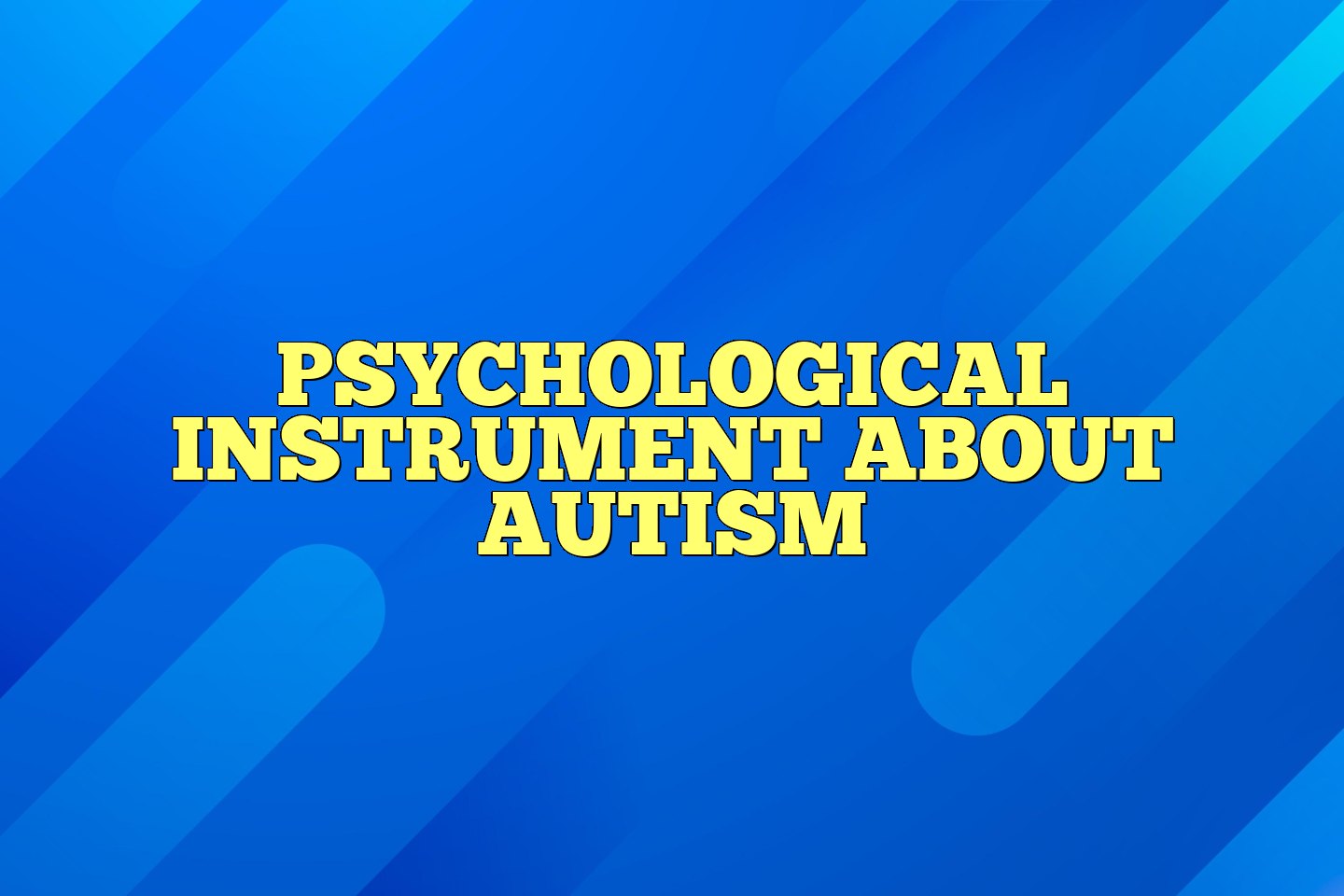Autism, also known as Autism Spectrum Disorder (ASD), is a developmental disorder that affects communication, social interaction and behavior. It is a complex condition that can manifest differently in each individual, making it challenging to diagnose and treat. To better understand and assess individuals with autism, various psychological instruments have been developed. These instruments serve a crucial purpose in aiding professionals in accurately identifying and evaluating the severity of autism in individuals. They also play a significant role in developing individualized treatment plans and measuring the effectiveness of interventions. In this article, we will explore the purpose and function of these psychological instruments used to assess autism and their importance in the diagnosis and treatment of this disorder.

A
- Adolescent Autism Spectrum Quotient (AQ-10) – Parent version
- Adolescent Empathy Spectrum Quotient (EQ)- Parent version
- Adolescent Systemizing Spectrum Quotient (SQ) – Parent Version
- Adult Autism Spectrum Quotient (AQ-10) – Self-administered
- Autism Parenting Stress Index (APSI)
- Autism Spectrum Quotient (AQ-10 Child Version )
- Autism Spectrum Quotient (AQ)
- Autism Spectrum Quotient (AQ) – Self-administered
- Autism Spectrum Quotient Children’s Version (AQ-Child)
- Autism Spectrum Screening Questionnaire (ASSQ)
- Autism Treatment Evaluation Checklist (ATEC)
- Autism Worries Survey (AWS) – Parent Version
C
- Cambridge Friendship Questionnaire (FQ) – Self-administered
- Checklist for Autism in Toddlers- CHAT
- Childhood Austism Spectrum Test (CAST)
- Children’s Empathy Quotient and Systemizing Quotient – Parent version
E
- Empathy Quotient (EQ) for adults
F
- Faces Test
M
- Modified Checklist for Autism in Toddlers, Revised (M-CHAT-R/F)
Q
- Quantitative Checklist for Autism in Toddlers
R
- Revised Cambridge Personality Questionnaire
T
- The Adolescent Autism Spectrum Quotient (AQ)
- The Adult Asperger Assessment
- The Empathy Quotient (EQ)
- The Empathy Quotient EQ